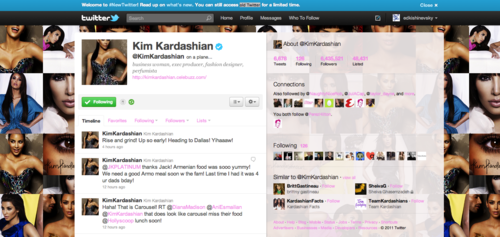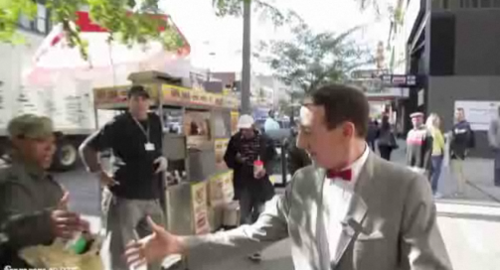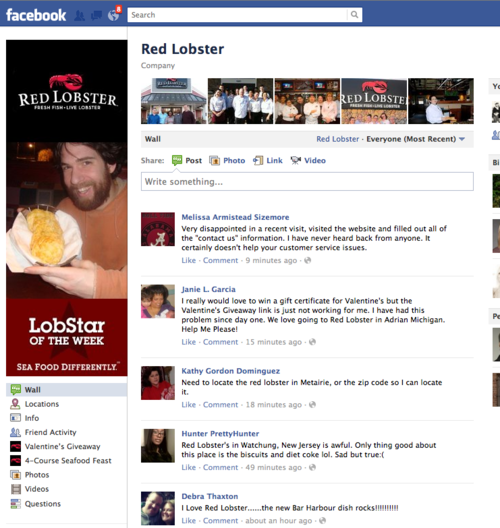Had this note on a celeb panel I attended from Social Media Week

The panel:
Celebrity Spokesperson in The Digital Age, Hosted by Hearst
Hosted at the Art & Culture Hub at Hearst
Event Description:
Gone are the days when a celebrity spokesperson only needed to do a couple of photo shoots and use the product. Today's smart brands are partnering with celebrities who have a direct relationship with their fans via social media channels. This panel will explore how mainstream celebs are using social media to increase their value and how social media all stars are turning themselves into brands.
Speakers:
Moderator: Kate White, Editor-in-Chief, Cosmopolitan
- Alisa Leonard, Director of Experience Planning, iCrossing, @alisamleo
- Rob Shuter, Publicist/ Blogger, PopEater, @NaughtyNiceRob
- Denise Richards, Actress
- Natalie Lent, Director of Strategy for ID, @natalielent
- Bryanboy, Fashion Blogger bryanboy.com
Before I pickup my draft, I though it was fun, more than anything. some instructional - in the sense that celebrities are using social media to engage directly with the public. but also in that celebrities are experimenting in the space. and that celebrities are having fun in social media. some are great at it like @KimKardashian - using twitter to stay on top of her reputation, quelch rumours about her family, etc.
i love lady gaga's mission for the DADT - which now challenges Malcolm Gladwell's blast against social media.
I'm not saying Twitter is behind the revolution in Egypt, but i do think of it as a power channel - information, education, advocacy, policy-influence. Yes.
Back to celebs, gossip columnist @NaughtyNiceRob, said sourcing isn't a big deal anymore because celebs come out on their and broadcast.
Below are the high points - there's also a great example of Twitter/Foursquare use by Pee Wee Herman to regenerate interest - great idea.

There was one other thing - that I think we as a culture/society need to figure out. That's the piece where education doesn't matter - like the fashion blogger with no actual experience or training. I have a feeling this is dangerous. as long as we digest @BryanBoy for fun, that's fine. when it gets more impactful, then we need to reassess.
High level points
The panel discussed celebrity involvement with social media.
Twitter is the hot button, probably rightfully so (my example is Lady Gaga – DADT, and Harry Reid)
EG: Power of Kim Kardashian to use her following
- for intelligence (as a giant focus group)
- to position herself and her family – as in quickly addressing any rumours,
- to promote her products
Celebrities and SM
Direct engagement with the audience/consumer – it’s exciting for the consumer to ‘interact’ with the celebrity, it gives them the idea they’re ‘co-creating’ and inputting into the celebrities activities.
Celebrities can
- endorse products
- get closer to their fans, maintain, build or re-build a relationship with their fans; (see PeeWee Herman case below which was a great example of using 2 social media vehicles – Twitter and Foursquare – for promotion and inclusion
- Raise awareness for charity, political, social concerns
Interesting program PeeWee’s Parade
PR strategist Natalie Lent described a very successful event program her group designed for PeeWee Herman featuring both Twitter and Foursqaure to rebuild awareness for the character. Lent admitted she did not know PeeWee from his playhouse days. The group devised a PeeWee Parade around New York and had him tweet and check in to places he went, like Katz’s deli, the Highline canal, his show on Broadway, and finished with a night of bowling with PeeWee at Bowlmor that only people who collected badges along the parade route, and went along the journey, could get into. I thought this was pretty cool. (My) NYTimes showed up along the route because they were following PW, not because they received a release. Links (the video is great):
BryanBoy consumer voice
The other point that I take from this is the BryanBoy blogger.
He’s become an influential voice in the fashion community with (I believe) over 120K monthly visitors/viewers. Marc Jacobs named a $5,000 bag after him.
Interesting because he admits he has no fashion background, training, skills, etc. to actually criticize the industry. He reports strictly on what he sees.
- True voice of the consumer, and the industry is listening – it’s amazing really – and in this sense – it’s great that industry is listening to its consumers. Pure, unadulterated.
- At the other end of the spectrum to me it’s like the analogy of watching a football game on tv and the commentator is your neighbor instead of Troy Aikmen. Sure your neighbor played in the backyard, and BryanBoy wears clothes. So they can both talk about it, yes, but with what level of knowledge or intelligence? How much of this is pandering?
Some SM rules, bits – which I think we pretty much know:
Greatest value: research – intelligence, direct engagement, Be: Transparent and Authentic Don’t be: Boring, Read: mashable, per Icrossing’s Leonard
Additional: It’s ok to take a moment to think (pause) before you broadcast
“you don't need sources anymore because the celebs themselves are saying what's up,” per columnist Shuter
check out these Facebook, Twitter social demographics



